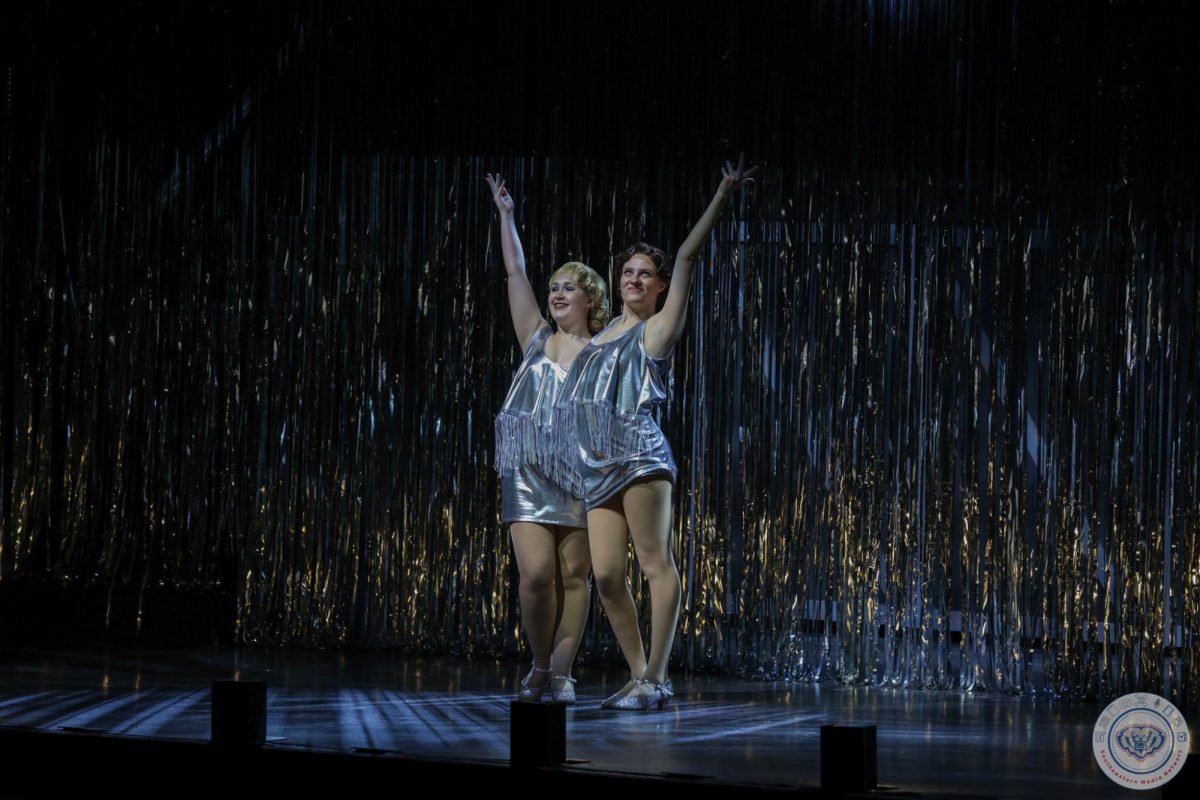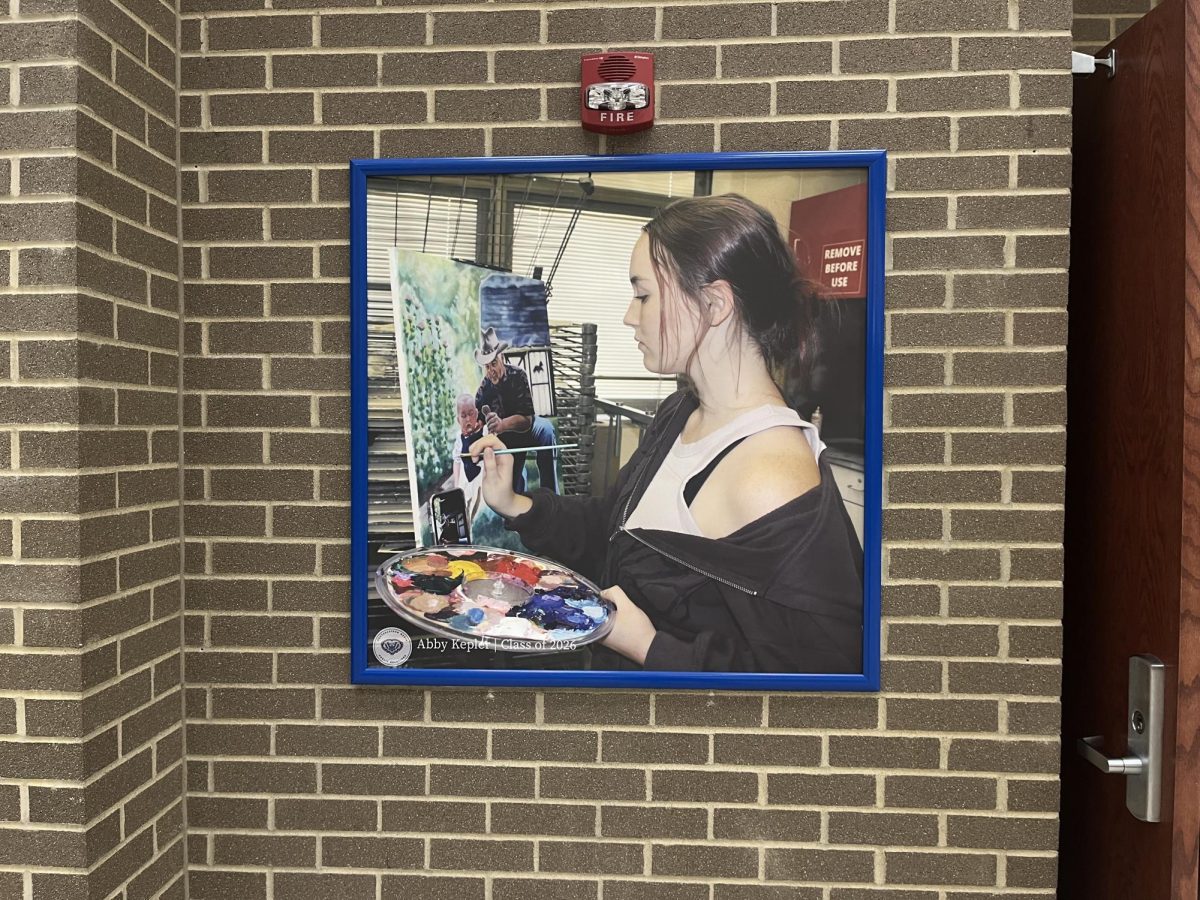For those unfamiliar with the novel Little Women, it was published in two volumes in 1868 and 1869, and tells the story of four sisters and their transition from childhood into womanhood. When the novel begins, the four March sisters– Jo, Beth, Meg, and Amy– are living with their mother while their father is away fighting during the Civil War. Although it does have its flaws, the musical adaptation currently being shown at the Booth Tarkington Civic Theatre in Carmel brilliantly captures the emotions represented in the novel.
Although the acting and musical numbers performed by the cast in the musical were strong enough to stand on their own, the crew did a fantastic job with the stage production. The border of the stage was lined with sentences from the novel in old english text, a very stylistic choice that suited the production well. When the sisters were in their living room, which was quite often, the lighting was very high key. It created a cozy, comfortable look that represented how the young sister’s viewed their home. The scene when Winter begins in the first act was executed very well, combining both lighting and orchestra to create a beautiful spectacle. The crew imitated snow falling outside the March’s window, and as the sisters grew silent while looking out at it, the lighting dimmed, making the snow shine. The orchestra picked up, utilizing a fast, pleasant soundtrack to accompany the beauty of the falling snow. The only complaint I have concerning the stage production was how long it took for the crew to change sets. Often times it would feel like the time between scenes was much longer than need be, and when they came back the set on stage had not changed much from the last one. It was particularly noticeable when the crew could be seen moving the set around for too long, as the orchestra played music to fill in the time.
The Booth Tarkington Civic Theatre features local actors and actresses of all ages in its performances. Hamilton Southeastern’s own Ethan Mathias is in the musical, playing the role of Professor Fritz Bhaer in his first show at Booth Tarkington. Mathias’ singing abilities shine during one of the show’s last songs, where he proposes to Jo March before the wedding of her sister, Amy. The romantic intensity in his voice and acting were very clear.
Julia Bonnett played the lead role of Jo March. She often outshined the rest of the cast when there were others singing on stage with her, particularly during a scene with Jo’s mother in the attic. Katie Schuman played Marmee in the show, and she shared a scene with Bonnett in the second act where they sang an emotional music number grieving over the death of Beth March. While Bonnett’s acting clearly portrayed Jo’s emotional response to Beth’s death, Schuman’s acting did not match up well with her singing. She sang of the loss of her daughter with much grief in her voice, but her body language did not back up that grief as well as Bonnett did.
Although they could not be seen by the audience, the orchestra positioned under the stage diverted the audience’s attention from their eyes to their ears several times throughout the show. Conducted by Trevor Fanning, the orchestra focused on bringing out the emotion of a scene more than providing a background soundtrack. The two scenes I have already mentioned, with Joa and Fritz and Jo and Marmee, are great examples of when the music fits the scene perfectly. When Jo and Marmee grieve, the music begins somber as they lament, and becomes stronger as the actresses’ singing becomes more pronounced. When Jo and Fritz talk of their potential marriage to one another, the music was hopeful and inspiring, with the light sounds of violins accompanying the lover’s hopeful singing. The orchestra was by far one of the best aspects of the show.
Little Women has been adapted many times, into different movies and other forms of media. This production’s writing does a wonderful job of translating the novel’s prose into lyrical ballads. The language of the first few scenes of the play had me worried, but over time it began to match the book well, sounding similar to Louisa May Alcott’s writing. Though some parts from the novel had to be cut down into smaller segments to fit into the show, I wish the production had shown more of Mr. Brooke’s relationship with Meg March, played by Justin Klein and Betsy Norton. It was hard to feel any emotion when Mr. Brooke proposed to her when we had only seen the couple once or twice after their courtship.
Overall, the Broadway Musical of Little Women is an impressively made adaptation of the classic novel. The stage production and orchestra performance were the most stand out parts of the show, and when combined, were able to create an emotional response from the audience without the cast’s help. Some of the cast suffered with portraying emotions in their characters, but many performances were spectacular on their own, especially Bonnett’s. The writing took the novel’s words and created memorable, often poetic lyrics that matched the music well. Little Women is at Booth Tarkington for another week, and I recommend it to any theatre fans.

































